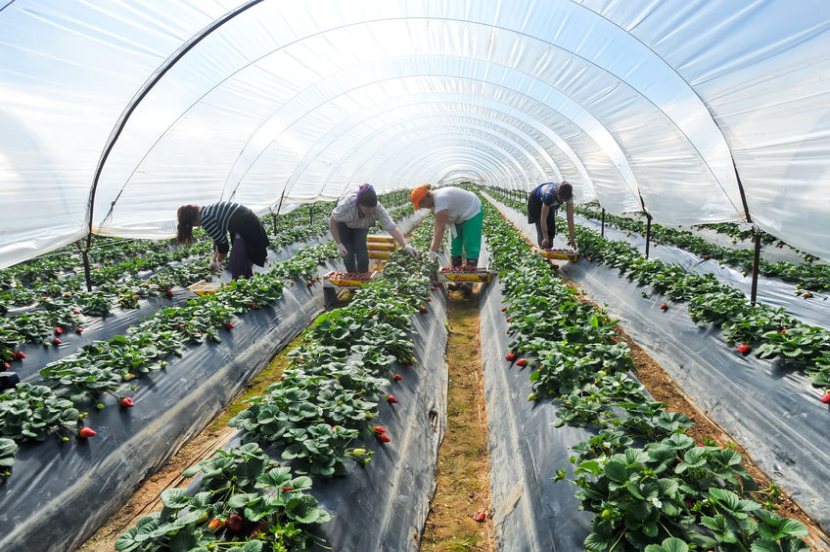
There is an urgent need to change the perceived image of farming in order to prevent 'disastrous' labour shortages, a new report warns.
The University of Exeter report looked at the UK farming industry's labour issues which exist for both seasonal and more permanent roles.
Researchers say the perceived image of farming as a career – 'associations with low pay, long hours, and poor work-life balance' – needs to be reformed.
They also suggest that new entrants for permanent jobs in the industry should include people from a greater range of backgrounds, such as career changers and ex-offenders.
The report says the Ministry of Defence should do more to spread awareness of farming opportunities and there should be more ‘halfway’ training schemes aimed at people from non-agri backgrounds.
Key members of the industry interviewed for the report described potential labour shortages as 'disastrous', leading to greater imports of fresh food and farms going out of business.
Brexit, the pandemic, fluctuations in the value of sterling, the improvement of the economies in Eastern Europe and new immigration laws are likely to exacerbate labour shortfalls in the coming years, the report warns.
Changes to immigration policy are also likely to make the situation worse, particularly in the horticulture, dairy, pigs, eggs, and poultry industries.
The study, commissioned by the Worshipful Company of Farmers (WCF), says farms will need to become more competitive and attractive as places to work.
There is also a need for farm employers to open up opportunities to people who are enthusiastic, but might need extra training or time to develop new skills.
The report says definitions of, and value placed upon, the skills of farm workers need to be revisited by the Migration Advisory Committee to ensure that the industry is not disadvantaged by the new immigration policy.
Use of online portals should be encouraged to facilitate the exchange of workers between businesses, and there should be new methods of collecting data to identify, with more certainty, where shortfalls exist across all sectors.
Researchers say that Defra should commission a thorough evaluation of the seasonal worker pilot scheme prior to introducing any new worker scheme.
Dr Caroline Nye and Professor Matt Lobley from the University of Exeter reviewed existing literature on farm labour shortages and alternative labour sources in agriculture.
They also carried out interviews with 21 people from the industry, including farmers, labour experts and initiative operators.
Dr Nye said farming was an 'invisible career' to anybody who was not from a farming background, adding that 'this needs to change.'
"Potential career opportunities in agriculture go far beyond simply picking fruit, and often involve working with complex technology and machinery, with some farm managers earning over £90,000 a year.
“It should not be assumed the rise in unemployment resulting from the pandemic will automatically create interest in seasonal worker roles," she said.
"The squeezing of price margins by supermarkets and a consumer base accustomed to cheap prices currently prevent worker pay from going above a certain level.
"The combination of low pay and physically challenging and repetitive work is not an attractive option, nor are the conditions currently associated with the work.
"Farms will need to become more competitive, flexible and attractive places to work in order to drive recruitment. This applies to both domestic and migrant workers.”
Researchers found there are now fewer small farms to act as a 'training ground' compared to twenty years ago, and agri students are often headhunted by large companies before finishing their studies.
Meanwhile parents, career advisors and teachers often fail to promote working in the agricultural industry, they said.
Richard Whitlock, of the WCF, said one striking aspect of the findings was how additional sources of labour and skills existed, which could partly close the resourcing gap.
He added: "It also highlights how important it is though for the entire industry to play a role in reforming the infrastructure, the mindset and build the reputation of agriculture as a dynamic, rewarding and vital sector that feeds our nation.
"Our mission is to identify where labour is required and help people see the potential sources of farm labour in a post-Brexit, economically ambitious Britain.”
